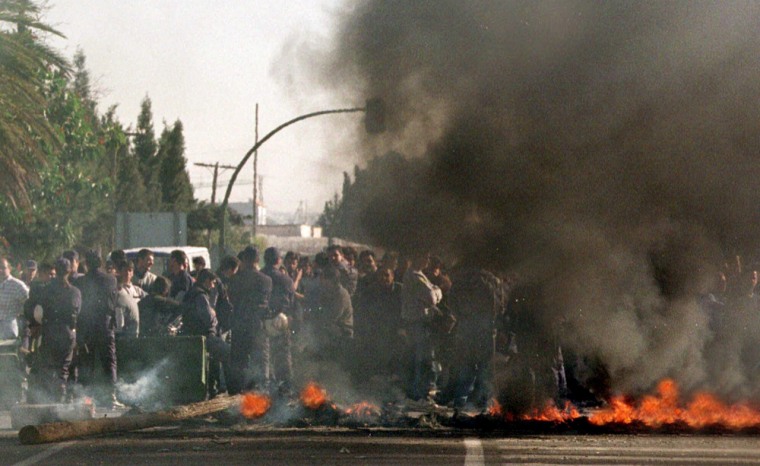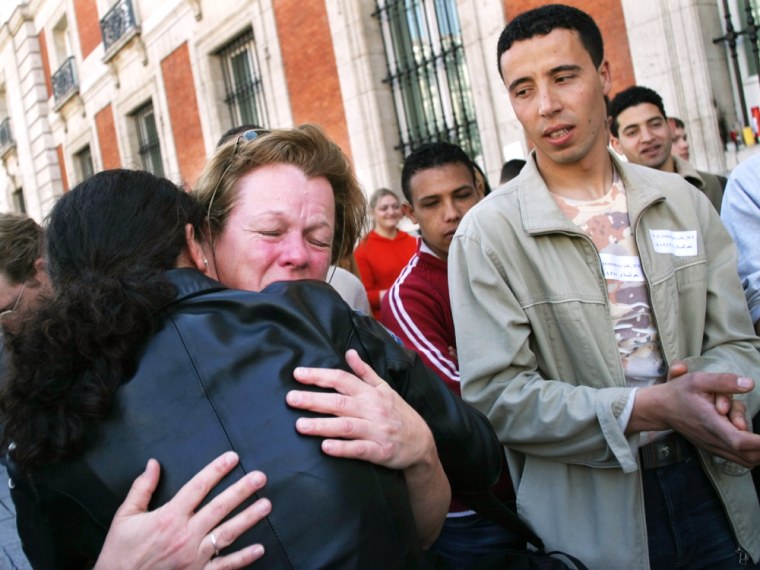Mohamed El Afifi Mohamed was shocked, but then became gripped by fear, the day when nearly 200 people died in the bloodiest terror attack in Europe.
"Now we are all going to be considered suspects," he thought as the Spanish government announced that Islamic fundamentalists were responsible for blowing up four commuter trains in Madrid on March 11, 2004.
Overnight police searched immigrant neighborhoods around Madrid and arrested dozens. Soldiers tightened security around airports and train stations throughout the country. Within two months Interior Minister Jose Antonio Alonso proposed legislation to monitor sermons in mosques.
El Afifi, along with other members of the Islamic community, feared a backlash.
"We knew we were going to have a difficult time after the bombings," said El Afifi, the spokesman for the largest mosque in Madrid and organizer of two major blood drives for victims of the bombings.
But, to his surprise, there were no major attacks reported against the more than half a million Muslims living in Spain.
Fears abated
Instead of rioting, Spaniards marched with hundreds of immigrants in peaceful demonstrations against the attacks.
"Overall we did not see a major increase in racist attacks after March 11," said Virginia Alverez of Amnesty International.
The Spanish government even offered residence permits and citizenship to all immigrants injured in the attack, as well as to the families of those who were injured or killed.
The Spaniards' response to the tragedy and their efforts to reach out to the Muslim community were in stark contrast to one of the worst outbreaks of racial violence that occurred only four years earlier in the southern town of El Ejido.

In February 2000 mobs of angry Spaniards set fire to homes, destroyed Moroccan-owned businesses, and ransacked a makeshift mosque in three days of anti-immigrant violence that shocked the world.
Tensions between thousands of Moroccan farm workers and the townspeople erupted after a Moroccan man was accused of stabbing to death a Spanish woman.
Many worried that the incident was the beginning of a new wave of xenophobia, but many of those fears have abated.
Life returning to normal
Today six months after the Madrid bombings many Muslims feel life is returning to normal.
"Now Spaniards are slowly coming back to our neighborhoods" said Haider Abded, a restaurant owner who admitted that business was down nearly 40 percent after the Madrid attacks.
His restaurant "Al-Quezar" is a popular place with Spaniards who come to the immigrant neighborhood to try Middle Eastern food, or have tea at one of many outdoor cafes playing the latest hits from Lebanon or Egypt.
Abded moved to Spain 23 years ago from Iraq and has always felt at home in his adopted country.
"I don't think that there is much discrimination against immigrants here," said Abded.
Others like Hicham, a Moroccan chef who asked not to be identified by last name, feel that although there may not be blatant discrimination, some people are finding it harder to get jobs or rent apartments.
"Before it was easy to find a job, but now many people just say 'no' to our faces," said Hicham who still believes that the majority of Spaniards are very open-minded.
Both Abded and Hicham, like many of the 2.7 millions foreigners in Spain, integrated into society with relative ease.
Spanish society more open to immigration
Normal difficulties of language and cultural barriers are common among immigrants, but many experts feel that Spain is far more open to immigrants than other European countries.
"Spanish society is basically pro-immigration," said professor Joaquin Arando who teaches about immigration at the University of Computense in Madrid.
Arando pointed out that Spain is the only country in the European Union which provides even illegal immigrants with health insurance, education and welfare benefits.
Last year the country received nearly 600,000 immigrants, which is more than any other member of the European Union. Although, it should be noted that Spain may have one of the highest growth rates of immigrants, their numbers are still not the largest on the continent.
Arando believes that Spain's relatively recent transition to a democracy from a dictatorship explains why the society favors immigration.
In 1975, when Spanish dictator Franco died, the majority of Spanish society "embraced progressive values and rejected extreme nationalism," according to Arando.
He believes that is one of the main reasons that as of yet there are no major anti-immigration movements in Spain like those in France, Germany or Italy.
